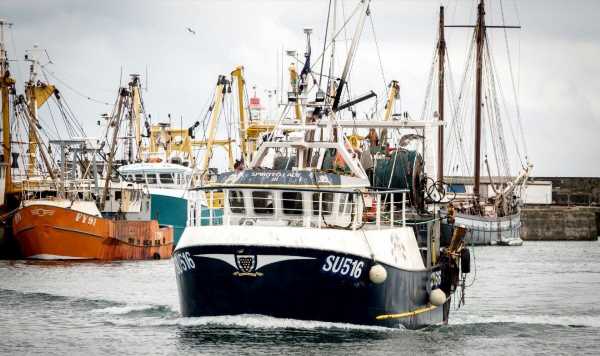Foreign fishermen to be invited to man British boats despite record migration
PMQs: Sunak and Starmer clash over migration
Foreign fishermen are set to be invited to man boats in the UK, as the country attempts to battle a major skills shortage.
This comes as the Government was hit with record levels of migration this morning.
The latest figures show that net migration has reached 606,000 – more than six times the level the Conservatives promised.
The previous set of figures, published in November 2022, showed that net migration rose to 504,000 in the year to June 2022.
The figures are an increase from pre-Brexit immigration levels, with most of the migrants coming from non-EU countries.

Net migration for the year ending June 2015 – the year before the UK voted to leave the EU – was 336,000.
But despite the ever-growing figures, the fishing industry is the latest sector to require support from foreign workers.
Both trawler skippers and experienced boat hands on large vessels have now been placed on the Short Occupation List.
This means foreign workers can now come to the UK on a salary of £20,960 instead of £26,200.
Applicants for a visa for these jobs will also pay a lower fee for a 3-year visa, with the price being slashed from £625 to £479.

Nigel Farage expressed concern about the state of the fishing industry, saying the “anger” in the sector is “astonishing”.
Speaking to The Sun, he added: “Most fishermen I speak to are already at their wits’ ends – I just give up.”
But Immigration Minister Robert Jenrick said the “comprehensive package” will help ensure the UK’s fishing industry is “able to fully benefit from the fish in UK waters”.
He added: “We strongly encourage the sector to engage with this to ensure they can attract the workers they need.”
Former Prime Minister David Cameron called on the Government to introduce more welfare reforms to get more British workers into jobs.
He said there is “no point” complaining “if you don’t have a better answer” to the small boat problem.
Mr Cameron told LBC: “I think the way to think about immigration is to recognise it’s a three-sided problem.
“There’s what immigration controls you can put in place.
“There’s what welfare reforms you have, to try and make sure that people who can work, do work.
“Then there’s what training and apprenticeship and other schemes you have, to make sure that we are training people for the jobs that our country is delivering.”
Source: Read Full Article

